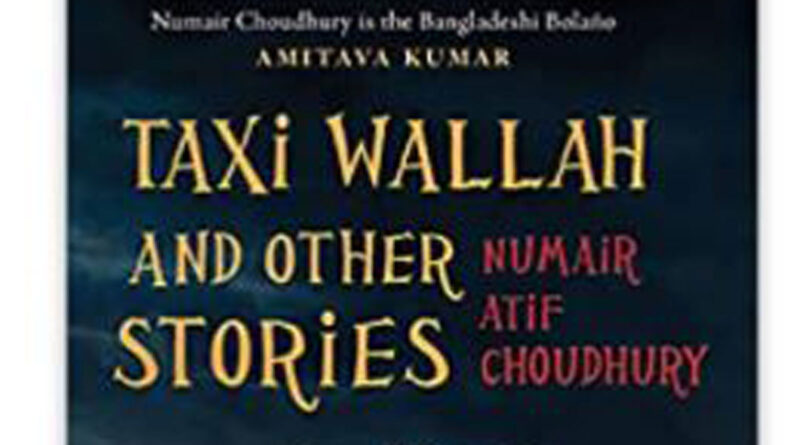Taxi Wallah and Other Stories
By Numair Atif Choudhury
I don’t know what stunned me more: the brilliance of the short stories, a mirror to Dhaka, or the fact that the too-young author died three years ago in an accident – a sub continental talent killed even before his path-breaking first and only novel Babu Bangladesh!, was published to much acclaim. The introduction to the short story collection by his fellow countryman Nadeem Zaman is in itself a moving tale, beautifully written.
Of the 11 feelingly crafted tales, I found the eponymous character, the Taxi Wallah, the least evocative, and was almost going to discard the book. (Least evocative perhaps because I am ‘hardened’ to such realities, the bane of the middleclass in our part of the world.) I am so glad I didn’t follow that first instinct.
Tales of truth, crafted with love
From the next story Rabia, I read through till the last story On The Way, without being able to set down the book. The tales are often brutal, shocking, deeply nostalgic, passionate, joyful, poignant, heart-felt but always bereft of pretence. The best kind of short stories.
The story of Rabia, the house help in an upmarket Dhaka home is a startling presentation of how class differences are so deeply ingrained in the sub-continental milieu. Rabia addresses her young mistress as ‘Apa’ or elder sister as a mark of respect in keeping with the social hierarchy, even though they are about the same age.
When Apa goes away to America and returns with new ideas of equality and fairness, and forbids Rabia from calling her ‘Apa’, Rabia’s reaction is something that only we, with our sub continental burden of a feudal past, will understand. A thought-triggering tale that shows that the acceptance of a classist society, and the inability to realise that this is wrong, are evident not just in the perpetrator but the victim as well.
Another story that hit me hard was Black. The narrator is a Bangladeshi freedom fighter, captured by then West Pakistani troops, in the Bangladeshi war of independence in 1971. The chilling tale, told in a dispassionate voice with the steel of patriotism underlying it, needs to be read – especially by all of us who take out freedom and democracy for granted. Nowhere in the story is any country mentioned by name, but it is evident to all Bangladeshis and to all who has read about the history of Bangladesh, what the countries are.
The Truth connects with this story in that even among today’s cosmopolitan Bangladeshi diaspora, the deep distrust and anathema towards Pakistanis are a thriving reality. (A reflection of the India-Pakistan divide and our inability to see past a colonial divide, and realize that the people across the border are, in fact, just like us.) In the story, under a drug fuelled haze on a night-out in London, Russell and Bilquis explore the tapestry of bigotry, nationalist and personal bias, divisions of religion and borders, and that despite it all, there are overlaps.
Tribute by reading…
I am yet to read Numair’s Babu Bangladesh! but am looking forward to doing so. The smiling photo of the gone-too-soon author at the back of the collection, overwhelms me even as I see the deeply thoughtful, sensitive and gifted young man that he was. Read this collection and Babu Bangladesh! as a tribute to his talent, his insight into the many avatars of the Bangladeshi, and above all his love for his country.

